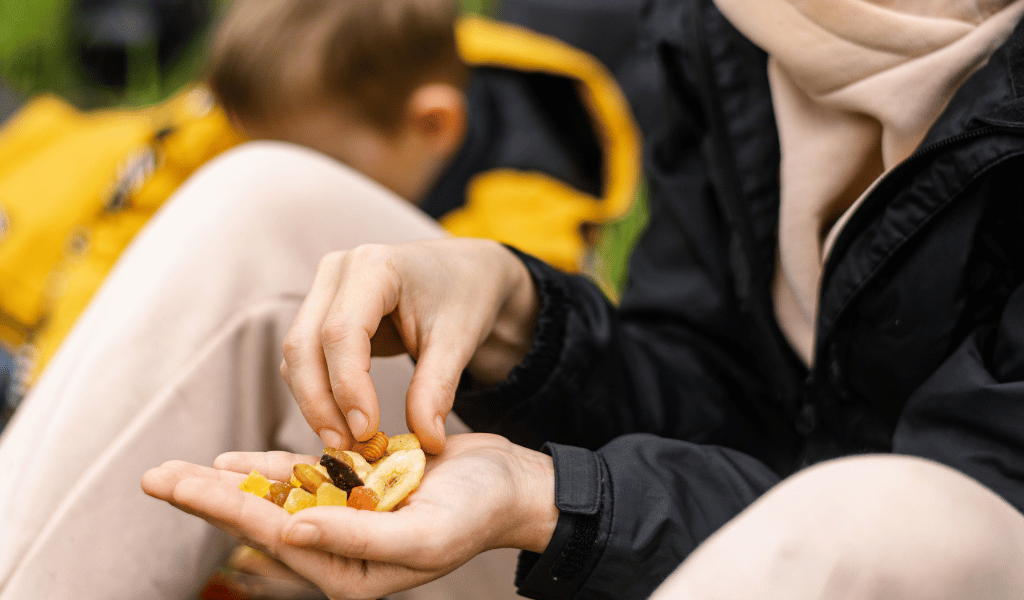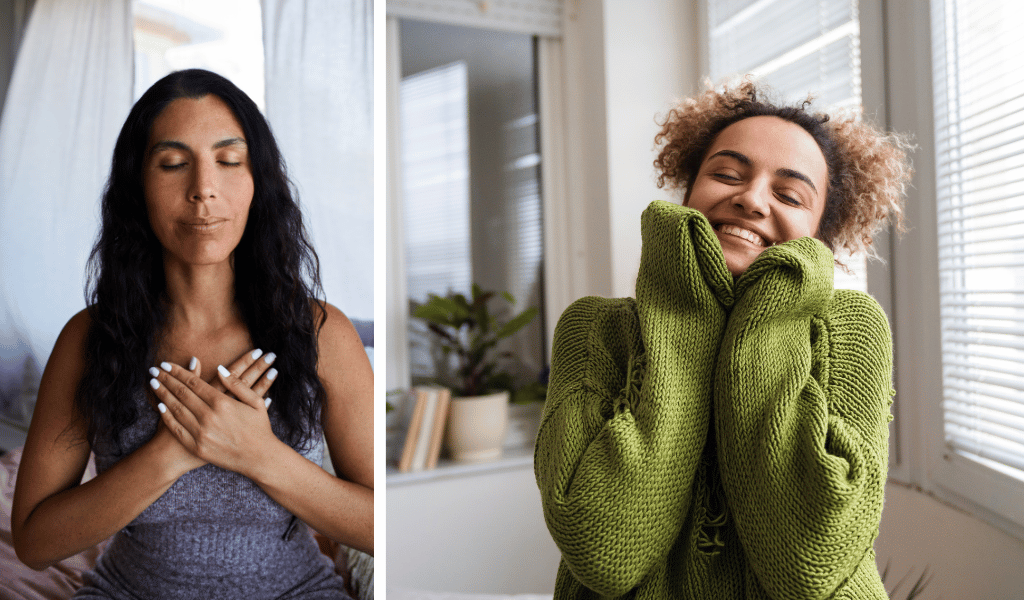We know self-care is essential, but how able are we at keeping regular self-care practices that *actually* support our wellbeing long-term? In this blog post, we turn to wellbeing expert Sonia Mainstone-Cotton for some easy wellbeing strategies, over to Sonia…
Thankfully looking after our wellbeing is becoming increasingly talked about and understood, however, I still regularly hear staff in early years settings and schools tell me they don’t have time to think about their own wellbeing. This article will offer a few ideas that you might be able to use, which won’t take lots of time, money or energy, but they could give you a little wellbeing boost.
There is increasing research showing links between what we eat and how happy this makes us feel. We all know that the guidance is to eat at least 5 fruit and vegetables a day. However, new research from Tim Spector and his team on the Zoe app proposes we need variety in our diet and suggests it is good to aim for 30 different plant-based foods a week. Initially, this might sound a lot, but if you break it down it includes oats, wheat in bread, coffee, tea, herbs, spices, pulses, nuts, seeds as well as fruit and vegetables. One of my recipe books from Rachel Kelly (2016) has a helpful pull-out at the back of the book listing foods in categories of:
– fab mood foods (these include avocados, blueberries, oats, sweet potato)
– very good mood foods (these include almonds, bananas, Brazil nuts)
– good mood foods (treats)
– low mood foods (these include canned soup, cereal bars, energy drinks)
Her books offer recipes to incorporate foods that are known to support our mental health.

We all need sleep to function well and there are various ideas around how much sleep we need, but generally, the advice is that adults need around 7-9 hours a night. If we don’t get enough sleep long term, it will impact our mental and physical health. There are many different things that can affect our sleep, some examples are stress, being a new parent, the menopause and being a carer. Where possible, it is a good idea to try and have a good sleep pattern. Some suggestions are:

Research shows us we only need to have 10 minutes outside in nature to lower our stress levels. It doesn’t have to be in a remote nature reserve or beach, it could be going for a walk in your local area, sitting on a park bench, or being in a garden having a cup of tea. I love how 10 minutes often feels manageable. When the weather is warm I often get in from work, make a cup of tea and sit for 10 minutes in the garden before I do the next task on my list.

Self-compassion is about how we treat ourselves and speak to ourselves kindly and lovingly. Often we can be our own worst critics, saying things to ourselves in our head that we would never say to a friend or a loved one. Kristin Neff is an inspirational writer and speaker on this subject. She suggests we need to treat ourselves and speak kindly and gently to ourselves as if we were speaking to a friend. It takes practice, but this is a practice worth cultivating.

This sounds frivolous, but we all need joy in our lives. A question I often ask in my staff wellbeing sessions is what makes you happy and how often do you do it? Sadly I am increasingly experiencing staff telling me they don’t know, especially younger staff. I think it is a really important question, we are all going to have times in our life when it feels incredibly hard and difficult, and at these times we need to know what we can do that gives us a moment of feeling happy. I have a happy board on my desktop to remind me, on this is a page of photos of things that make me happy, it includes my garden, my family, time with friends, walking in nature and many photos of wild swimming spots (my love is cold water swimming).
These ideas are not meant to be a fix to a mental health problem, for this, you really need to speak to a medical professional, but they hopefully might offer a few thoughts about some simple ways to support your wellbeing.
For more ideas on this look at my book Promoting Emotional Wellbeing in Early Years Staff: A Practical Guide for Looking after Yourself and Your Colleagues (2017).

About the author
Sonia Mainstone-Cotton is a nurture consultant working with 3 and 4 year old children in Bath who have social, emotional and mental health needs. An essential element of this role is in supporting the children’s and staff wellbeing. Sonia delivers training across the country to schools and early years settings as a freelance trainer. Sonia is the author of 10 books and is the series advisor on the Little Minds Matter series with Routledge books. Sonia wild swims throughout the year to support her own wellbeing.
References
Kelly, R. (2016) The happy kitchen London Short books
Zoe app- https://zoe.com/learn/30-plants-per-week
Neff, K. (2011) Self compassion London Yellow kite